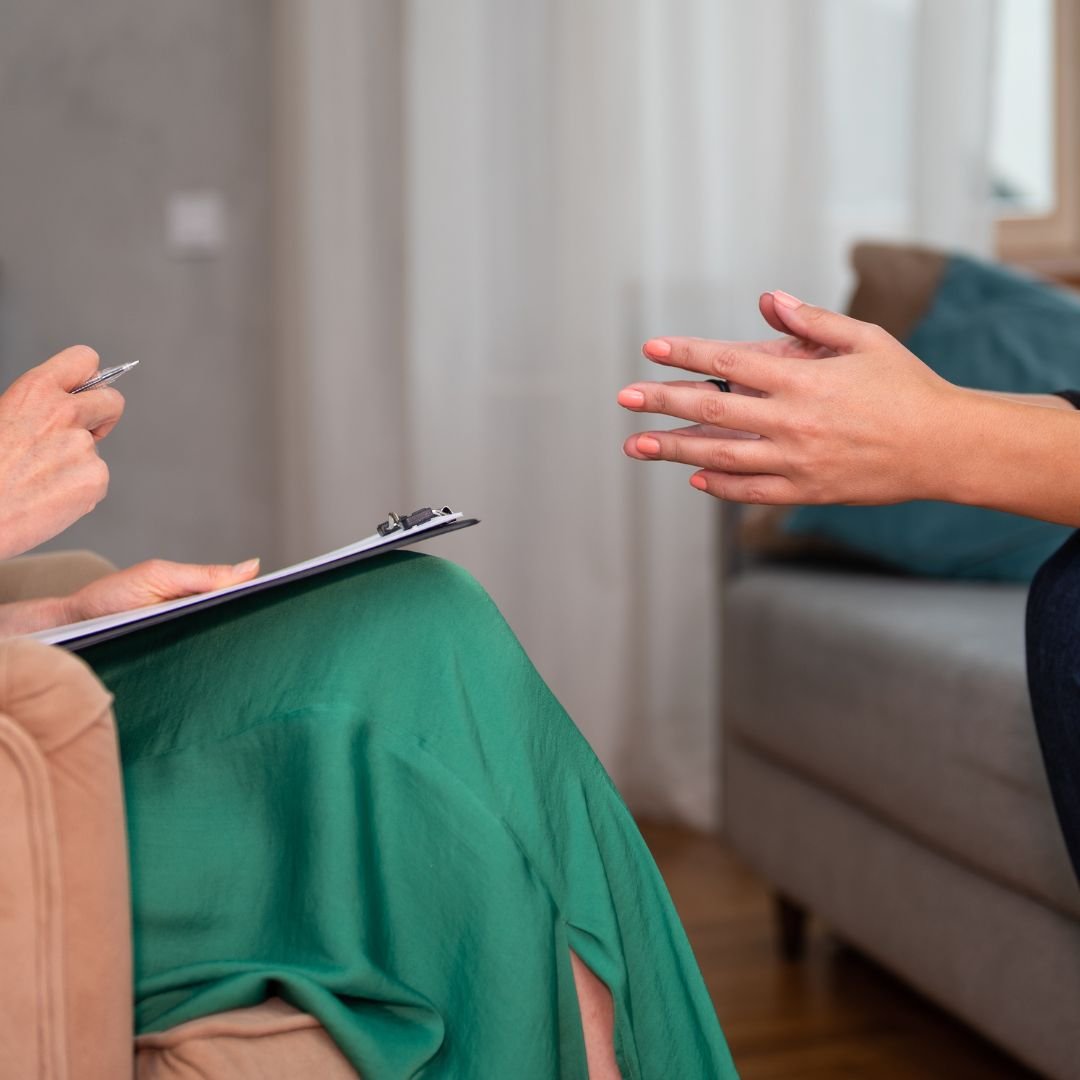Signs You Might Need Therapy (And What to Do Next)
Do you ever find yourself wide awake at 3 AM, googling “signs of depression” or replaying a conversation from two years ago that you wish had gone differently?
Or maybe you caught yourself snapping at your kids, your partner, or the barista at Starbucks who definitely made your coffee wrong—but deep down, you know it’s not about the coffee.
If you’re here, something’s probably been feeling off.
That’s okay. Let’s talk about what that might mean.
How To Know If You Need Therapy—Warning Signs
Last week, a client told me she realized she needed therapy when she broke down crying and said, “I feel like I’m half-assing everything in my life—motherhood, my career, my marriage.
And no matter how hard I try, I feel like I’m failing at all of it.”
That feeling? It’s not just stress.
It’s exhaustion, overwhelm, and your mind telling you something has to change.
1. Your Emotions Feel Like Too Much… or Nothing at All
Maybe you just feel down more than usual.
Or you feel completely numb, like you’re watching your life happen but not really feeling in it.
Maybe things that never used to bother you suddenly make you irrationally angry.
It’s like a rage bubbles up out of nowhere, and it’s not like you.
Emotions are like a check engine light.
When they start acting up—whether it’s too much, too little, or just off—it’s worth paying attention to.
2. Your Daily Routine is Falling Apart
Are you sleeping way too much… or not sleeping at all? Struggling to do basic things, like making a meal or answering a text?
Maybe your Gmail has 1,187 unread messages, or you’re avoiding your work computer completely.
This stuff sneaks up on you.
It’s not the big things that tell you something’s wrong—it’s staring at a sink full of dishes and feeling completely overwhelmed.
3. Your Relationships Feel Off
Have you been ignoring texts, canceling plans, yet feeling really lonely?
Maybe you feel irritated and annoyed with everyone, even the people you love and care about.
Or you’re in a room full of people but still feel alone.
When we’re struggling mentally, it always shows up in our relationships.
If you feel distant or disconnected, that’s a sign that something deeper is going on.
4. Your Mind Doesn't Shut Off
You lay in bed at night, so tired but unable to sleep.
Your brain is a constant loop of thoughts that go nowhere.
Or you replay old conversations, thinking of what you could have or should have said.
I’ve been there—the 3 AM anxiety spiral, the exhaustion.
It’s often a sign that your brain is stuck in survival mode. And that’s not a place you want to stay.
If you’re nodding along to these signs, it might be time to explore your options.
Why These Signs Matter
This isn’t just “a rough patch.”
It’s your mind and body trying to tell you something needs to change.
What doesn’t help?
❌ Pushing through.
❌ Pretending you’re fine.
❌ Thinking you just need to “toughen up.”
You wouldn’t ignore a broken bone… so why ignore your mental health?
And you’re not alone in this. According to the National Institute of Mental Health, more than 1 in 5 Americans struggle with a mental health condition—yet 33% of them don’t get the help they need. That’s a lot of people silently struggling. But it doesn’t have to be that way.
What to Do Next
Recognizing these signs is the first step. Now, let’s talk about what you can do next.
Start With Acceptance
Needing therapy doesn’t mean you’re broken—or beyond repair.
It just means you’re a human being. And recognizing that is a great place to start.
Know Your Options
You don’t have to figure this out alone. There are options:
✔ One-on-one therapy (great for going deep)
✔ Group therapy (good if you feel alone in your struggles)
✔ Online counseling (perfect if you’re busy)
✔ Crisis hotlines (because sometimes you need help now)
Take Small Steps
Don’t overthink it. Just start.
👉 Step 1: Google “therapist near me”
👉 Step 2: Jot down what’s been bothering you
👉 Step 3: Call your insurance and ask what they cover (there’s usually a number on the back of your card)
👉 Step 4: Reach out to 2-3 therapists
👉 Step 5: Set up an initial session and see how it feels
What to Expect in Your First Therapy Session
It’s totally normal to feel weird about starting therapy.
You might feel nervous or unsure. That’s okay.
Your first session is just about getting comfortable. You’ll probably:
✔ Talk about what brought you there
✔ Answer some questions about your background
✔ Get a feel for your therapist’s vibe
✔ Set some goals (or just talk—no pressure)
And—you’re in control. If it doesn’t feel like a good fit, you can try someone else.
Takeaways
Everyone struggles sometimes—celebrities, therapists, business executives—everyone.
If the hard days are outweighing the good ones, it might be time to get some extra support.
You don’t have to do this alone.
Therapy helps. I’ve seen it change lives. And it might just change yours too.
With love and solidarity,
Are you looking for an experienced therapist to help you through your struggles? Let’s connect!
Reach out for a free consultation today!
Related Articles:
How to Have Less Mental Clutter in 2025
Depleted Mother Syndrome: How to Feel Like Yourself Again
Sources:
National Insititute of Mental Health (NIMH): Mental Illness Statistics
Stringer, H. (2024). Emerging trends: Mental health care is in high demand. Psychologists are leveraging tech and peers to meet the need. Monitor on Psychology, 55(1).






